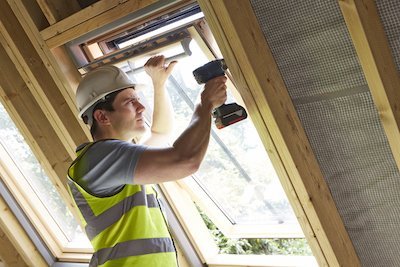
There are various types of construction certifications and knowing which ones your business needs to hold can be confusing. In this article, we’ll go through the most common types of certifications for construction companies, where they are required and what kind of businesses would benefit from having them.
A construction certification is an official recognition that a construction company or contractor meets specific industry standards or requirements. These certifications are awarded by recognised organisations or regulatory bodies, and cover different aspects of the industry, including Health & Safety, environmental standards and quality management.
Obtaining construction certifications demonstrates a company’s commitment to maintaining high standards, ensuring compliance with regulations, and delivering reliable, safe, and environmentally responsible services.
While some certifications may be required during the tendering process, others may not be mandatory but can still offer significant benefits, enhancing your business’s reputation.
Key construction certifications
SSIP (Safety Scheme in Procurement) is a standard for Health & Safety recognised throughout the UK. It is commonly requested by those within the house building industry but can be used for any sector to show Health & Safety compliance.
SSIP is completed online and will not require any on-site auditing in order for you to pass. Depending on the member scheme you choose the number of questions may vary but for all schemes, you will need to meet the core criteria.
If you are required to hold an SSIP certificate, Smas Worksafe can help you to become certified. For more information visit our SSIP Certification page.
CSCS cards provide proof that individuals working on construction sites have the appropriate training and qualifications for the job they do on site. By ensuring the workforce is appropriately qualified the card plays its part in improving standards and safety on UK construction sites.
Holding a CSCS card is not a legislative requirement. It is entirely up to the principal contractor or client whether workers are required to hold a card before they are allowed on site. However, most principal contractors and major house builders require construction workers on their sites to hold a valid card.

CPCS (Construction Plant Competence Scheme) is one of the key certifications for construction companies that provides a card scheme to verify the skills of plant operators. It’s based on a combination of professional competence and Health & Safety awareness – both essential qualities for plant operators.
All Build UK sites will require you to show your CPCS card and it is being enforced by most employers to show their skills. In some cases an employer might not ask for a CPCS card and certification may be enough to prove your skills.
The Electrotechnical Certification Scheme (ECS) is the sole ID and competence card scheme for electrotechnical operatives in the UK and is recognised and endorsed by the industry.
Holding an ECS card proves your qualification status, main electrical occupation, identity, your Health & Safety awareness, as well as any additional disciplines in which you are skilled to work.
ECS is a partner of the Construction Skills Certification Scheme (CSCS), so anyone in an electrotechnical-related occupation who’s told ‘you need a CSCS card’ will likely need to provide an ECS card.
Site Supervision Safety Training Scheme (SSSTS) is a course designed for workers who are set to take on supervisory responsibility at an organisation and need official training and qualifications for the role.
Once passed, the certificate will last for 5 years and you will then need to take a refresher course (SSSTS-R) to maintain certification. If your initial certificate expires you will be required to retake the fundamental course.
The Site Management Safety Training Scheme (SMSTS) is an industry-recognised course that provides certifications for construction companies, helping them meet the ever-increasing demand for evidence of Health & Safety compliance with all the relevant knowledge to meet today’s legislative demands.
The course will give you a full understanding of:
Once passed, the certificate will last for 5 years and you will then need to take a refresher course (SMSTS-R) to maintain certification. If your initial certificate expires you will be required to retake the full course.

ISO 14001 helps businesses of all sizes across all sectors make their day-to-day operations more sustainable. Sustainability can ultimately save money, improve brand reputation, engage employees and build resilience against uncertainty as well as the ability to rapidly adapt to change.
Designed for any type of organisation, regardless of its activity or sector, it can provide assurance to company management and employees as well as external stakeholders that environmental impact is being measured and improved.
An ISO is not a requirement but is recommended for any business that wants to set up, improve and then maintain an environmental management system to conform with industry regulations and requirements.
ISO 9001 is the internationally recognised Quality Management System (QMS) standard that can benefit any size organisation.
Designed to be a powerful business improvement tool, it is based on a number of quality management principles including a strong customer focus, the motivation and implication of top management, the process approach, and continual improvement.
While no company needs an ISO, they may see the benefits of having one, especially when tendering for work, as it is one of the key accreditations for construction companies.
Many aspects of ISO 9001 can be transferred into ISO 14001. Combining the management systems can increase focus and remove any room for confusion.
Responsibilities for the combined standards might include:
When adding ISO 14001 components to those of ISO 9001, planning must be expanded to deal with environmental impacts, and the inspection and test systems modified to cover environmental conformance. The organisation must meet the environmental expectations of customers and the government, and it must incorporate environmental management elements into internal audit programs and training sessions.

The Common Assessment Standard is a certification designed to standardise the pre-qualification process, helping both clients and contractors improve supply chain efficiency, reduce supply chain risks, and find reliable business opportunities.
Launched by Build UK with the support of CECA in 2019, the Common Assessment Standard has quickly become the construction industry’s gold standard for pre-qualification.
The standard is available for all businesses and helps contractors to display compliance across wider criteria such as environmental, financial standings and modern slavery.
PAS 91 is a standardised pre-qualification questionnaire which has been developed to reduce the need for suppliers to complete a variety of different pre-qualification questionnaires for different, and in some cases, the same clients.
Developed by the British Standards Institute (BSI), the question set has been commissioned by the Government and is a recommended common minimum standard for construction procurement.
PAS 91 was originally introduced as mandatory for central government contractors but is now recommended for all principal contractors as part of essential construction certifications.
Asbestos awareness training is important because it helps make sure that workers understand the risks associated with asbestos exposure and know how to handle situations safely. It should be undertaken by anyone who may come into contact with asbestos during their work, not just those involved in its removal.
This basic training equips individuals with the knowledge to avoid potential hazards, while more detailed training is required for those performing unlicensed or licensed asbestos removal work.
If you’re looking for asbestos training visit our partners UKATA.

Here at Smas Worksafe, we specialise in helping businesses navigate the complexities of industry certifications with SSIP packages, including the Common Assessment Standard, which shows that your business has the essential policies, procedures, and competencies required to manage key risks and maintain high operational standards effectively.
We also offer a variety of CITB-approved training courses to help you upskill and advance your workers’ careers, including:
For more information, request a quote or give us a call at 01752 280183 and our team will be happy to help.
